 Meet two shows that are totally gay with nary a drag queen or “you go girl” in sight.
Meet two shows that are totally gay with nary a drag queen or “you go girl” in sight.
Albie Grant is the de-facto leader of the United Effort Brotherhood, a fundamentalist polygamist Latter Day Saints sect living on the outskirts of Sandy, Utah. He’s been poisoning his father, leaving rattlesnakes in the bed of his brother-in-law and chief rival and doing all the things expected of a creepy fundamentalist polygamist leader trying to make his mark in the world. The one problem? He has a thing for picking up rough trade and hooking up with them in fleabag motels.
Meanwhile, in another fictional world entirely, women run the world. One’s the head of state, another’s a hot-dog pilot and don’t even get us started on the lesbian robots running around trying to figure out the true nature of love while plotting to destroy the human race.
There are two ways a television producer can go about introducing gay and lesbian themes into a show. The first is to introduce gay characters and depict their lives respectfully and honestly, but there’s another path that’s been embraced by two of cable’s most provocative shows: HBO’s Big Love and SciFi’s Battlestar Galactica. Call it “gay vague,” call it “queer”; these shows may feature gay characters in secondary and tertiary roles, but their entire ethos is steeped in questions of gender identity, sexuality and characters struggling to make their unconventional love acceptable to the intolerant folks that surround them.
Both critically acclaimed shows return to TV this weekend, and while you may not think that a drama about Mormons or a space opera with a name as cheesy as “Battlestar Galactica” could have any relevance whatsoever to the gay community, by subverting expectations of their respective genres and infusing them with a queer sensibility, they’re providing a whole new context to think about the lives of gays and lesbians.
How about we take this to the next level?
Our newsletter is like a refreshing cocktail (or mocktail) of LGBTQ+ entertainment and pop culture, served up with a side of eye-candy.
They also frakin’ rock.
Big Love
HBO (Sundays 9PM)

The continuing story of the Henricksons, a polygamist family trying to mainstream their lives while still staying true to “The Principle.” Big Love comes with quite a gay pedigree. Created by gay couple Mark V. Olsen and Will Scheffer, the show was also the launchpad for Milk screenwriter Dustin Lance Black, who earned his writing chops creating storylines for some of the younger characters on the show, who probably grew up reading children’s books like Elijah Has Three Mommies. Led by paterfamilias Bill, the Henricksons are just like your average American family in many ways, but they must live their lives in secret, since, despite mainstream perceptions, the Church of Latter Day Saints is wildly intolerant of the polygamist lifestyle.
The Gay Angle: The great conflict of the show is Bill’s struggle between wanting to “come out” as a polygamist and his attempt to disassociate himself from the freak show fundie sect he and one of his sister-wives grew up in. Creator Mark Olsen says:
“Whenever we develop stories in the the writers’ room, the question is always “What does this have to with marriage?” or “What universal truth about marriage is embedded in this story?” It’s always very much about marriage with a capital ‘M’, family with a capital ‘F’.”
The show has particular resonance in the wake of Mormon involvement in the passage of California’s Prop 8 and the show has referenced real-life events before, so it may make an appearance this season, but even if it doesn’t, the show’s exploration of the way discrimination and religious zealotry impacts every aspect of a family’s life make it a must-see.
Bonus Gay Appeal: Star Amanda Seyfried plays Bill’s daughter Sarah, who wishes she had a normal life and indie-star and gay icon Chloe Sevigny plays the show’s most uptight and neurotic sister-wife.
Battlestar Galactica
Sci Fi (Fridays 10PM)

Yes, it’s based on the schlocky 70s TV show, but Ron D. Moore’s “reimagining” of Battlestar Galactica is more a show about life in the age of terrorism than it is about spacesuits and robots. The basic premise is the old Robots Kill Humans thing, only here, the robots are fundamentalist religious zealots who believe in a monotheistic God and look like supermodel Tricia Helfer. After the robots, called Cylons, nuke most of humanity, the survivors, led by Admiral William Adama (Edward James Olmos), make their way across the reaches of space in search of a prophesied homeland called Earth.
As the show draws near its conclusion, the humans have formed an uneasy alliance with the Cylons, as they both have reasons to work together to find Earth. Unlike most macho boy’s sci-fi, women are in charge without being treated like cruel asexual beings. Mary McDonnell’s role as President Laura Roslin has had her airlocking Cylons, but also crying on the shoulder of Admiral Adama as she copes with her terminal cancer.
The Gay Angle: Cylons are unstoppable killing machines, but they’re also capable of love, compassion and kindness. The humans initially treated any Cylon sign of real emotion as artificial (and for the most part, still do), but over the course of the series, the audience has come to see that there’s little difference between man and machine; there’s even a human-cylon couple with a baby on the show. As the notions of “otherness” between the two rivals melts away as they live together, many of the characters have questioned their initial prejudice and treatment of the Cylons as ‘less-than-human.’
Bonus Gay Appeal: British hottie Jamie Bamber plays Adama’s son, Lee. He’s been naked at least once. Two of the characters on the show are gay, though one of them is now dead at the hands of her Cylon lover and the other one’s gay storyline has so far been relegated to a web-only mini-series.

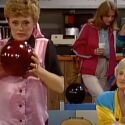
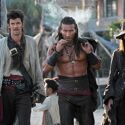
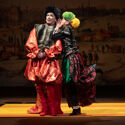


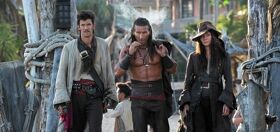
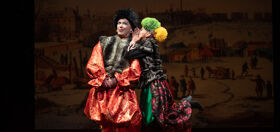
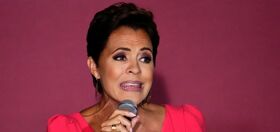
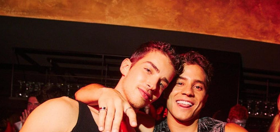
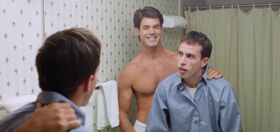
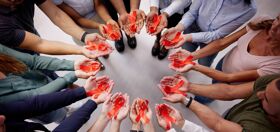

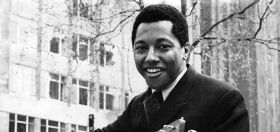
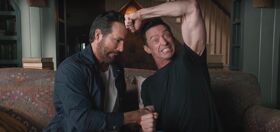
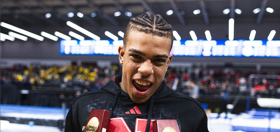
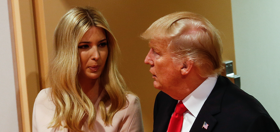
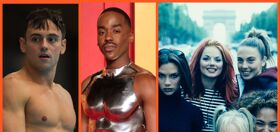
Nick
Have I told you lately that I love you, Japhy? Thank you again for a BSG shout out. I watch a lot of television, and frankly, it is absolutely one of the best shows on TV.
And it is with love and devotion to Queerty and BSG, that I have a couple of nits. It is Mary McDonnell, not McDonnel, and Jamie Bamber is British. 🙂
badlydrawnbear
Battlestar Galactica is in my opinion, and many critics, the best show on TV right now.
All of the characters are richly developed, well written, and superbly acted. The story lines and character arcs have been, for the most part, excellent and the action of gritty dirty fights between humans and cyclons has been phenomenal.
BSG is a space opera, and it sometimes goes over the top, but at the end of the day it does what good Sci Fi has always done, reflect contemporary issues and flip them on their head and force the audience to reevaluate their conventional thinking.
When you find yourself rooting for the human ‘insurgengts’ and their suicide bombers to kill as many god fearing cyclons ‘occupiers’, and their collaborators, who are only trying to ‘bring peace and stability’ you know you are watching something great.
Sampson
I’m a bit ‘blah’ about sci-fi on TV, but Battlestar has been my stand out series for the last four years. The tone can get extremely dark and occasionally the spiritual mumbo-jumbo is a bit overdone, but I’ve managed not to lose interest. I’m excited about the final episodes airing from tomorrow night. For anyone who isn’t sure if they would enjoy Battlestar, imagine 24 and The West Wing in space, with a sprinkling of Donnie Darko atmospherics, and you’ll have an inkling of what it is like.
Jamie Bamber is British, not Australian. Not quite sure how the author managed to get that one wrong.
Tallskin
Yeah, battlestar is about to start, and sadly finish!
Best thing on TV.
Japhy Grant
@Nick: Thanks!
Jon
Bill Paxton is so hot in BIG LOVE that he makes me want to be “wife” # 4, for something different for him every fourth night. Not to mention, of course we gay guys know how to have the best sex! heh, heh
Darth Paul
Excellent pics, esp Big Love. I’m sad Weeds never really explored its gay tangents beyond lil-lez Isabella (who rocks).
DMAKron
Okay, as a devoted gay geek I have to go on record here and kinda go a little nuts. I apologize for my rant ahead of time. *Ahem* Are you fracking kidding me? Battlestar Galactica? For the longest time gay fans asked for an openly gay character to which the creator of the show simply said, “Oh no, no, I don’t want to make characters that are pigeonholed and defined as the ‘gay one’.” Fine, whatevah. Then comes the shit-tastic little mini-movie ‘Battle Star Galactica: Razor’.
We finally got our gay character alright- right in the teeth. You see, the series’ version of Hitler, Admiral Kane is this bitch on wheels who gets resurrected in time for us to learn that not only is she a nuts-o murderous, torturing scumbag that makes Dick Cheney look like a blushing schoolgirl; but she happens to be a lesbian. WTF?
It was after that I swore never to watch the show again. Although I hear they finally had a regular character, Gaeta, come out of the closet. The first time they showed him being intimate with another man was on a webisode, not even on regular TV. Give me a break.
Sorry Japhy, but girl you done fell and broke your widdle head if you think BSG is gay-friendly.
rick
gacclestar bagnactica is as stupid as the original. it makes NO sense. i am gay, 50, and a huge sci fi fan and this show is just plain dumb. the religious nonsense and the deal with the cylons (original episode pilot they said they were created by an insect race, then they changed it to humans made them)is just plain mind boggeling. you can take a crappy sci fi premise and tack on some cool special effects but it is still a load of crap.
oh, i loathe star wars too. evidently lucas has neve heard of the laws of physics.
Sampson
@rick: Sounds like someone has hit the menopause 🙁
Stenar
By the way, both of the shows you highlight here are based on Mormonism. Battlestar Galactica, created by Mormon Glen Larson, is based on Mormon theology. Mormonism talks a lot about the lost twelve tribes of Israel. The people in space on Battlestar Galactica and the other ships in the fleet are supposed to be the lost twelve tribes trying to find their way back to Earth.
There is also a lot of stuff from Mormonism mentioned in BSG like the Quorum of Twelve (Apostles). One of the planets in BSG that their ancestors lived on is Kobol, which is a transposition of the name of the Mormon planet Kolob, where it is believed God the Father lives.
Why do you think those Cylons are so obsessed with God?
Mel
You forgot to mention that one of Battlestar Galactica’s premier cylons is played by Lucy Lawless, beloved of lesbians from her years as “Xena: Warrior Princess.”
Re: Admiral Cain — “BG: Razor” pretty well established Cain’s reasons for having become the bitch on wheels she became: (1) losing her sister to Cylon kidnappers in the First Cylon War, & (2) discovering her lesbian love was a Cylon agent. Pretty fundamental betrayal there, on a couple of levels. That it turned Cain into the person she became is a commentary on betrayal, not on lesbianism.
Tremendous show.
Michael vdB
My hubby *loves* BSG. I do too but I need to be in the right mindset. lol. TY Japhy for adding a bit of insight into a show that is really well done. Too bad it is soon to enter the realms of the cult classic vaults. I hear though that there is a possible spin off and web shows too to live on. Thank the stars for the internet.
getreal
Thanks for shouting out Big Love one of my favorite shows. It is a must see! It is deliciously addictive with all the intrigue and twists and turns. I’ve heard it described as “kind of like a mormon Sopranos”. Even more interesting is how it challenges the viewer to examine their own views on religion, love, family, and how “open minded” are those of us who consider ourselves liberal.
scott
I skimmed this post so I might be talking out of turn but really, a gay tv show should have gay characters in it. Ala Brothers and Sisters. Will and Grace. Etc. So, not buying this post. Try again.
Alfredo Munoz
It was certainly shameful when a man with a beard remained the passive partner (pathikos) and it was even worse when a man allowed himself to be penetrated by another grown-up man. The Greeks even had a pejorative expression for these people, whom were called kinaidoi. They were the targets of ridicule by the other citizens, especially comedy writers. For example, Aristophanes (c.445-c.380) shows them dressed like women, with a bra, a wig and a gown, and calls them euryprôktoi, “wide arses”.
Tallskin
Ok Queerty, not ever having heard of BIG LOVE until you mentioned I have taken your recommendation and gone and downloaded it. I will see how I like it.
Jon Wilson
BIG LOVE….uh, could you also mention what a HOTTIE Bill Paxton (the much-in-demand daddy) is in BIG LOVE?!?!?!? HELLO! YOUTH is not everything!
Six
Thank you for highlighting the gay metaphors in BSG. I’d like to add the reveal of Sharon Valerii as a metaphor for coming out later in life; she had the clues to her true identity the whole time but didn’t realize the truth until it walked up and inappropriately touched her. 😉
Michael W.
@Six: The man you’re thanking was fired from here like a month ago.
His writing was fabulous, wasn’t it?
weeds lover
@Darth Paul: The very first episode of weeds had a big gay seen in it with Doug Wilson’s son Josh. Then in season four there were the gay DEA agents. Also Celia had some homosexual tendencies when she was drunk and depressed.